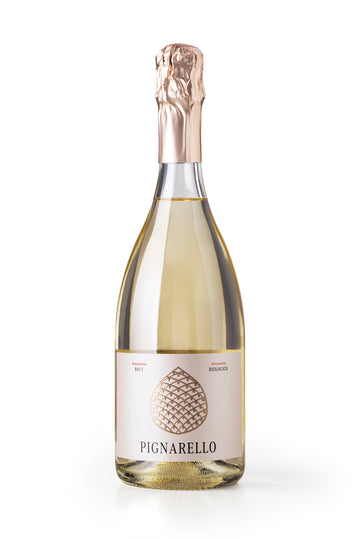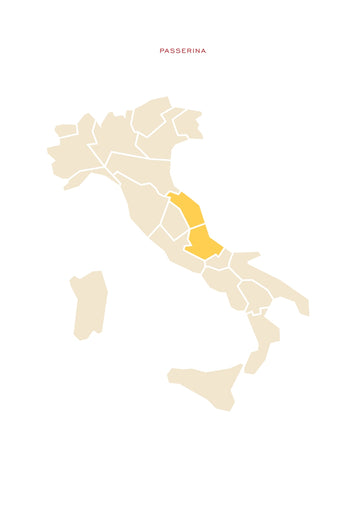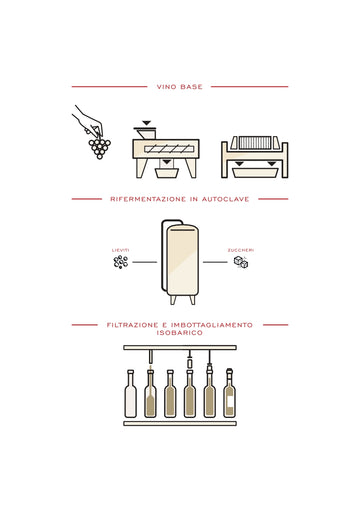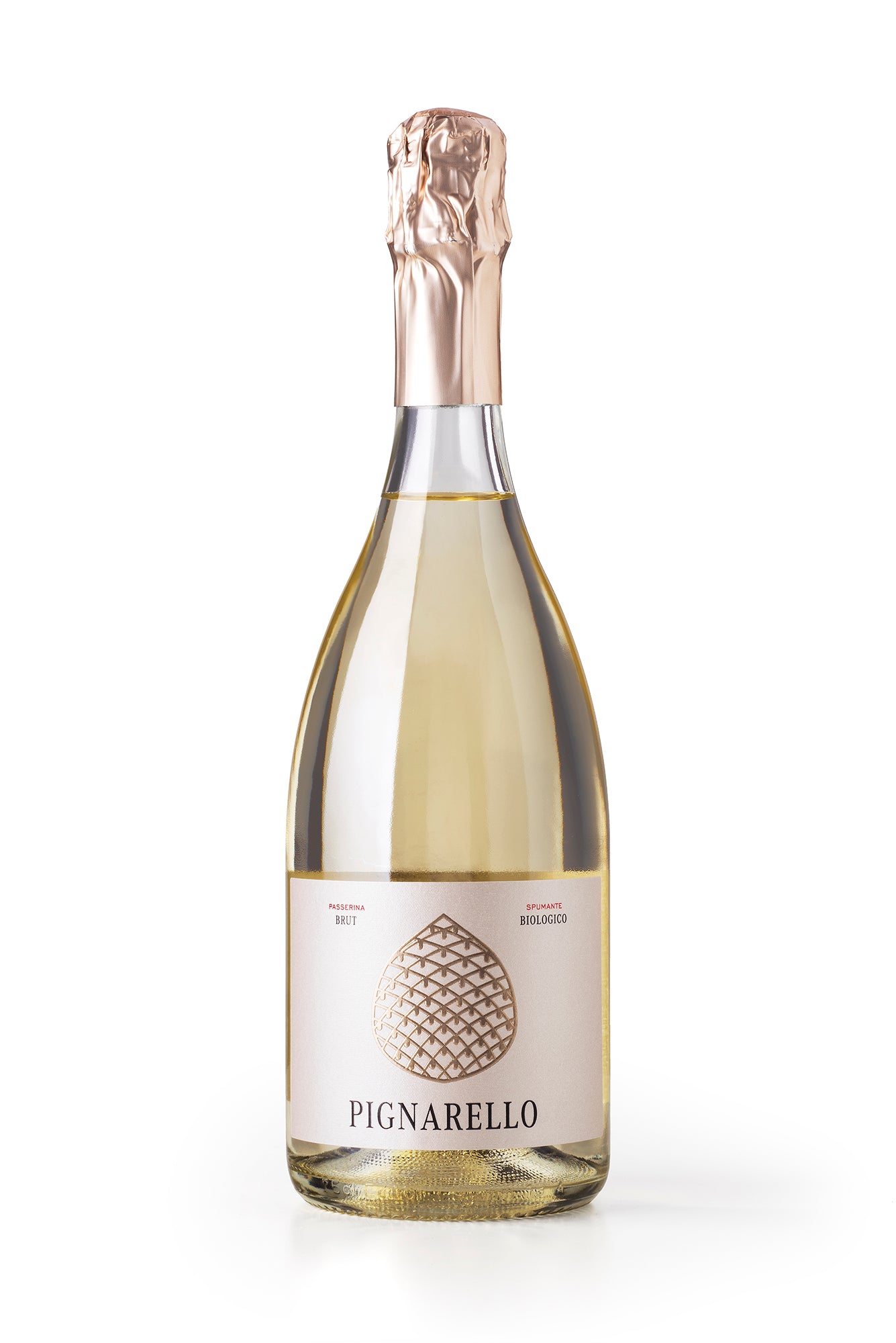Pignarello - Organic Spumante Passerina Brut
Pride and Elegance
This is precisely the motto of our Pignarello, a bubble that represents the best expression of our territory and manifests it with extreme elegance from the first impact on the nose where notes of tropical fruits or golden apples are perceived up to the final sapidity that "invites the beva", closing with a refined bubble that stimulates the palate.
-
Estimated delivery:29 Dec - 02 Jan
-
Free shipping and returns on all orders

Pignarello - Organic Spumante Passerina Brut

Passerina - The Grape
Native white grape variety from Central Italy, widespread mainly between the Marche and Abruzzo.
The typical color is straw yellow.
On the nose the aromas vary from tropical fruit to citrus fruits while on the palate it is striking for its excellent acidity compensated by a very balanced final sapidity.

Charmat method
The Charmat (or Martinotti) method involves the mass fermentation of the base wine in stainless steel containers under pressure, more commonly called autoclaves at a controlled temperature.
The result of this is the obtainment of fresh and fragrant sparkling wines, since it allows the enhancement of aromas and flavors in a much shorter period than the Classic method.

Organic product
EU regulation 203/2012 defined the practices and processes of winemaking for organic wine, as we know it today, marked by the symbol of the green leaf.
However, to really understand the history and meaning of the "Organic Product" it is necessary to take a step back:
In fact, in the history of agriculture, cultivation has always been organic; after the Second World War, chemicals entered the fields with the consequent increase in the quantity of products harvested to the detriment of biodiversity.
Starting from the 70s, some Italian farmers began to adopt more environmentally friendly cultivation techniques until the European regulation was issued which, in a nutshell, establishes that the production of organic wine has the aim of preserving the natural fertility of the soil , in full respect of local species, both plants and animals, with particular regard for the balance of the ecosystem.


